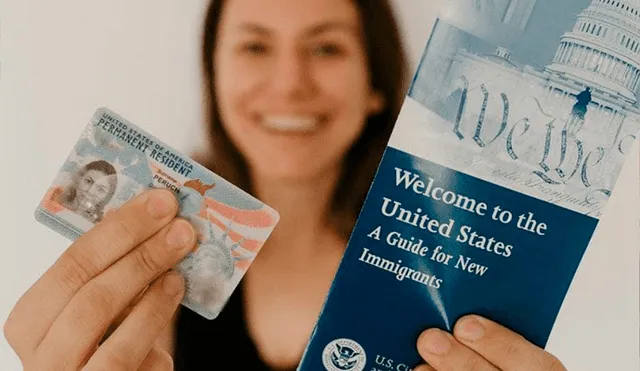Green Card 2025: Learn the differences between permanent and conditional in the U.S.
The Green Card is an essential document for anyone wishing to live and work legally in the United States. There are two types of permanent residency—legal and conditional—each offering different benefits and responsibilities.

The Green Card is a crucial document for those seeking to live and work legally in the United States. It grants permanent residency, which comes with a set of rights, protections, and responsibilities. However, there are two main types of permanent residency: legal permanent residency and conditional permanent residency. Both options offer different benefits and have varying requirements, making it essential for immigrants to understand which category applies to them.
The process of obtaining a Green Card can vary depending on the applicant's circumstances. It involves meeting specific eligibility criteria and completing required procedures. Once approved, a Green Card holder enjoys the right to stay and work in the U.S., but understanding the distinction between legal and conditional residency is key to navigating the long-term implications of their status.
What's the difference between permanent and conditional residency
According to the U.S. Citizenship and Immigration Services (USCIS), permanent residency is classified into two main categories: legal permanent residency and conditional permanent residency. Below are the characteristics and benefits of each.
Legal permanent residency
Legal permanent residency, known as the Green Card, grants the right to live and work indefinitely in the United States. The process for obtaining it varies depending on the individual’s situation, as there are several pathways to acquire it, including:
- Family-based
- Employment-based
- Special immigrant
- Refugee or asylum status
- Victims of human trafficking and other crimes
- Victims of abuse
- Other categories
- Registry-based
This type of residency allows immigrants to enjoy various benefits, such as access to public services, the ability to apply for U.S. citizenship after a specified period, and protection against deportation, as long as the required conditions are met.
Conditional permanent residency
Conditional permanent residency is a type of Green Card that is valid for two years. Holders of this card must submit a renewal request at least 90 days before it expires. Failure to do so risks losing their permanent resident status and being removed from the United States.
Generally, after renewing the conditional residency for a ten-year period, individuals have the option to apply for unrestricted permanent residency or even apply for U.S. citizenship. This process is crucial for those aiming to establish permanent roots in the U.S. and enjoy all the rights of a permanent resident.












